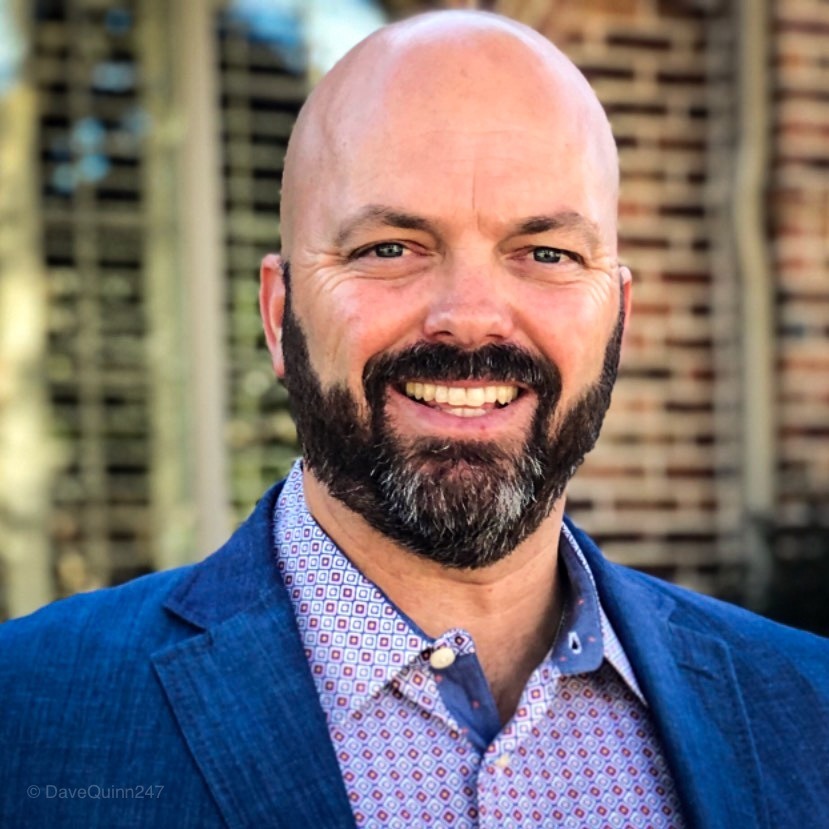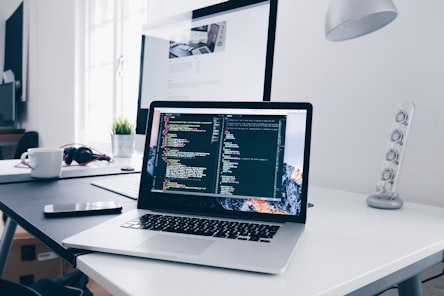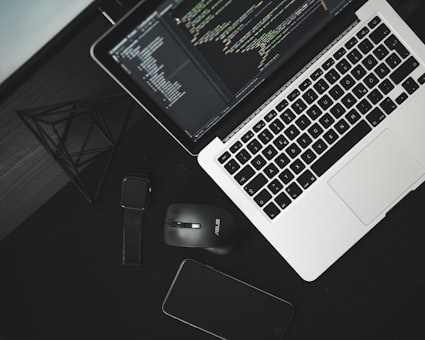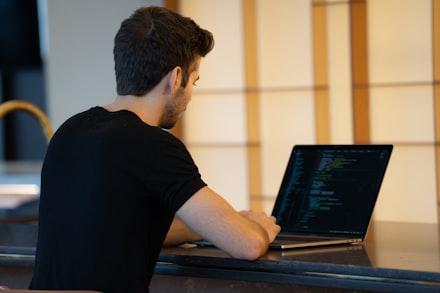Keeping teams motivated, learning to function remotely, and developing true leadership in tough times are some of the challenges the world goes through day after day. Dave Quinn, Interim Economic Development Manager for Fairview Economic Development Corporation, spoke with Abel Osorio, our CEO, and they shared their visions and missions in the world of business growth. These are the main ideas that Dave shared with WeDevelop, to develop a professional mindset that allows you to think strategically and face any crisis.

Thank you for joining us today, Dave. Introduce yourself and your company.
My name is Dave Quinn, and I’m a certified economic developer, managing partner and chief inspirational officer for Day One Experts. We are an economic development consulting firm based in Frisco, Texas that works to create solutions for companies, developers and communities needing expert advice. My friends call me “Super” Dave — a nickname I earned long ago that reminds me to have a positive impact on those around me and be the best version of myself.
This is the first time I have heard the title “Chief Inspiration Officer,” what is that?
The title, chief inspiration officer, adds a different layer of context around who I am, what role I play and what’s expected of me. Obviously, I don’t do things by myself; I have a team. My job is to create a company culture that allows people to grow and develop alongside Day One. It’s a daily reminder for me to always be looking for the opportunity to inspire others.
I think having that role comes with a great responsibility, because to motivate someone, you have to know how that person is doing, so I guess you have a very in-depth personal connection with your team, right?
Yes. We’re in the people business. People talk about talent worth and the search for talent. Creating the right company culture recognizes that performance rarely is about the job itself, it’s about the environment that that person is working in. We are all human beings who struggle at different times and have issues we are dealing with. In order to maximize the productivity in our organization, people have to be at their best and know that their company supports, encourages and promotes them.
Motivation is temporary. Inspiration is an intentional thing you have to strive for. In order for us to help our clients to be their best — to inspire them and to give them visions of what’s possible — it starts with our team. By creating the proper team culture, we radiate out to our customers a sense of confidence. People should want to be around us. Maybe they don’t know exactly why they want to use us, but they know that when they spend time with us, they feel better. That is something that I’m a big supporter of.
You mentioned something really important: Motivation is temporary, and you have to find motivation very often. How do you do that? You have to motivate people, but you have to be motivated to do that. So, what’s your secret?
It starts with having and seeing yourself as part of a larger picture — what role you play and where you fit in. It can be challenging at times overcoming obstacles like COVID, the recent ice storm in Texas or whatever world event that may be happening. Any business has challenging periods of time. To be able to stay motivated, you have to understand that it’s worth it, that there’s some value in the struggle. Only when we see the big picture and realize we are a piece of it, that allows us to embrace the challenge. When we see where we fit and that we are part of something larger as humans, we are able to accomplish a lot more than what we normally would. When there’s hope, there’s this greater good that I’m striving for, which makes everything worth it.
I constantly remind myself that it’s not just about the work I’m doing; it’s about creating impact and ripples across the greater good. If I’m really good at my job, that means communities and people I work with are achieving goals, which means more people are getting jobs and opportunities because of what we’ve done.
The other component to staying motivated is being grateful. It could always be worse, right? So, on a bad day, I remember to some people it would be a day that would be a relief, right? Understanding and being grateful for where I am at that moment — even if it’s not where I want to be specifically — is really good. If I have a bad lunch, well, at least I had lunch. These kinds of things seem silly and insignificant, but I think being grateful for these tiny little things all stacked together allows me to stay motivated. In turn, I become a constant reminder for others around me to have a grateful heart, make them feel wanted, and make sure they understand how they fit into the greater picture.
I’m personally very into motivational leaders and techniques. I’m actually reading a book called “The 5 AM Club” by Robin Sharma. It’s very impressive. I’ve seen many different techniques for creating a positive environment for yourself, to be a motivated person and to achieve goals and not only run behind them. Do you follow any technique or any philosophy to do that?
Yes. I have a morning routine that I’ve developed over time. I limit and cultivate my environment very carefully. Every day, I make sure I am taking care of myself first. Before I take on social media, before I open my emails, in those first 15 to 30 seconds when I first wake up, I practice being very grateful at that moment, and that thinking goes through my mind. It can be simple thoughts like, “I slept in a bed with warm covers and shelter.” Even if I know there’s something in the day that I don’t really enjoy doing, or for whatever reason I think is gonna be a tough day, at that moment I have something to be thankful for. So, I start there, and then I get through my morning routine, and then from there, I go into the day.
Another habit I practice is I don’t watch the news, you know — the normal traditional news. It’s been probably a decade or more since I created the habit. I never miss anything going on in the news, because I’m on social media for my work and have to be on social media platforms and share on LinkedIn. So, I’m still out there, but it’s less toxic. I have learned to be very conscious of what comes into my mind. I’m also an avid reader. I probably read a book and a half in a week. I consume a lot of positives, whether it’s biographies or The 5 AM Club — I’ve read that one, and then I follow what other people do. It comes down to me incorporating the best of what makes sense for me. I’ve noticed a thread across almost all of these many different books that I have read that distils gratitude being at the center, as well as having a purpose and believing that you’re part of something larger than yourself.
I also practice breathing exercises. I’m a Wim Holf fan, and I put my body and myself in a position to be at its peak performance every day. I do probably 20 to 30 minutes of meditation followed by a devotional. I’m a believer in Christ, so I have a devotional time to strengthen my faith. Finally, I do some sort of physical exercise which could be walking, stretching or lifting weights.
I found that I need to cultivate negativity out of my social media feed and life that are just not useful. It’s not that you have to be positive all the time; that’s not it. However, if you’re negative all the time and are constantly pointing out issues and problems while never offering solutions, I tend to call you out, because you know, it’s easy to point out problems and find faults. It’s much harder to have a conversation around about finding the solution. Even if you’re wrong, at least having a conversation around a solution has value. And so, I encourage people that even though their thinking may be flawed, at least they are trying to find solutions and I really enjoy that. So, I think doing my part by being hypersensitive to the environment and surrounding myself with the people who are positive puts me in the best place possible during the day.
I am seeing, during COVID, a lot of different emotional opinions on social media. Usually they tend to be negative, and thus people tend to receive negative things around the environment. And although COVID was negative for some of us, there is also a positive way to see it, to face it. So, having this filter to absorb only positive things makes you a more positive person, right?
I recognize the pain and the suffering that exists. I can feel empathy for those people who have gone through traumatic experiences, because I get it. But I also know people who have thrived during COVID because of their business line or just because of their attitude toward it. They changed the way they were doing things and were able to pivot. They didn’t allow the pandemic to define them.
Before the pandemic, we thrived on in-person meetings that we had to attend. Suddenly, we were forced into a situation where we still needed to get business done. We had to get comfortable with the new technology and to navigate Zoom and Google. We were forced to figure it out. We benefited from uncertainty, because we found solutions to problems that ultimately created great efficiencies in how work gets done.
There are lessons learned, and there are opportunities that present themselves as long as we look for solutions instead of staying focused on just the problem. So, we were able to do both — recognize there’s an issue or challenge but then be able to step back and say, “Okay, what is something that I can learn from this? What’s the lesson?” Good or bad, and it may be uncomfortable. That’s the other thing: People think that it should be easier, or “I don’t have to struggle.” Sometimes, it’s a hard lesson to learn, but it’s a waste if you don’t learn the lesson. So, as long as you learn something and can change or adapt because of it, then you minimize the downside of it.
It’s hard because people lost loved ones. We lost friends. I don’t go outside with a positive fire and force you to be positive. I just try to help people take a different perspective and try to see what did happen and how we help you move forward. What are some things that we can do, whether it’s business or personal? How can we help? How can we help to find the positive?
You mentioned earlier that your work is to keep your team motivated and you related that to keeping a positive mindset, and also took into account all the COVID situation, all the crazy 2019 and 2020… and 2021. How was that time for your company or team? How did you face this very difficult crisis?
When we come together as a team or we are in meetings, we should be able to recognize where each team member is emotionally and personally and be mindful of that. When we have challenges, we avoid spending a lot of time asking the question “Why is this happening to us?”, or “Why do we have to face this?”, but instead change and reframe the question to, “How do we deal with this?”
Recognizing what you are going through is just a thing — it’s not personal. Life doesn’t say “I’m gonna make him go through pain.” When we take away the why and focus on the how, we can now begin to manage through difficult circumstances.
How do we reframe any negative situation and ask better questions to get better answers? What do we need to learn? How do we better serve our customers? How can we adapt to online meetings when part of what we’re supposed to do as a company is meet with brokers and build relationships through face-to-face interactions?
I can either spend time remembering the fact that I don’t have that resource, or I can say, “Hey, this is a really neat opportunity that could lead, in some way, to a positive change on how we do things,” “How can we work this out?,” and “How can we come out of this better?” The pandemic made us realize we have some of the old ways that are still available to us, but also, we have this new way that could lead to greater insights and gains.
I think we all want to be around people who make us feel better, in some form or fashion. Our opportunity is to have positive conversations with people and again, not judge them for thinking negatively but help them find the positive solutions. We were able to do that as a company. We thrived through this pandemic and got new clients who recognized the value of what we bring and how they can leverage our experience, knowledge and relationships to achieve better outcomes. It’s been really good, because when we started, we weren’t sure how we were going to get people to recognize our value without having had some sort of experience first. Now we’re meeting people all over the country and all over the state. I don’t have to get on a plane and take three days to have a meeting. It’s easy to set up.
For example, we’re having a great conversation. I’m smarter because I’m talking to you, and I might not have had that opportunity if I had come to your country to visit you in person. I would have never found you, but because of the social world that we live in, we connected and now we’re having this great dialogue.
Helping shift people’s mindsets has allowed us to come through COVID in a better place. There are still days where it’d be nice if life was just normal again. It is; it’s the new normal. It is a constant reminder to remain focused on the good. You don’t just click and forget about it. It is also nice to have other people remind me we’re doing okay.
I guess the remote situation also worsened things. You mentioned that you had to have these conversations remotely, which was positive in some way and negative some other way. What other challenges did you face other than the remote situation, during COVID times?
Part of the challenge of COVID was just paying attention and focusing. How do you get people to focus on what’s important and what’s not? Also, at times, it was very difficult trying to pick up where people were emotionally. Every conversation was very stressful, because some people were doing well. So, with them, you didn’t want to start a conversation with something negative like “I hope everything’s okay.” For some people who were really struggling, saying, “This is the greatest thing ever,” about a business pivot, for example, could cause discomfort, as they could be dealing with the loss of a loved one to COVID.
We have had to be more mindful of what people may be going through, and that’s been more challenging. I have learned how circumstances can change quickly. One day, everything’s fine and then suddenly, parents get sick or a loved one gets sick with COVID. What’s really important is that person’s mental shift. Just navigating all of that while not being overly positive so as to not create resentment because of a perception I’m doing better than they are. It still is a delicate balance.
Another challenge remote workers faced was the lack of some physical energy that went missing. It can be very challenging when you’re sitting at home 10 hours at a time by yourself. It’s not that I was physically tired, but I was drained at the end of the day. It’s almost like there’s one way of energy going out, however because there’s no one around, there’s no way of energy coming back. It’s made my morning routine even more important. If I’m not energized, going into my day can be just exhausting, and then later in the day, my productivity falls off. I have had to be able to have grace for productivity — to understand where that lack comes from and know that it’s not a person being lazy but just what happens. It has caused us as a team to better understand timelines and manage expectations. My wife works from home, and she was fine as long as the kids went to school and came home, but during COVID that was not the case. For her, the blocks of uninterrupted time went from 2 or 3 hours to 30-45 minutes. I had team members in different situations that they had to work around. From a project management standpoint, we wrestled with these combinations. I have a small company, so I can’t imagine if I had a team of hundreds how I would have dealt with that.
I think our audience for this interview may not know Day One Experts, so, would you like to explain what it is? Also, how is the new normal for you?
Day One Experts is an economic developing consulting firm, especially fractional economic development. We find the sweet spot where we help communities that need specific economic development expertise either for a short period, for a specific project, or even over time. If they need a higher level of expertise than they can afford for whatever reason — maybe it’s political or maybe it’s just budgetary — we provide expertise where it’s needed, when it’s needed, and at a cost they can afford for the public side. On the private side, we help businesses connect with communities and economic organizations that help them offset their costs, relocation or expansion. And they know that exists because they see it in the news but don’t know how to tap into that, or they don’t know how to package their value in a way that allows the community to understand how to help.
The scenario usually is the community wants to help, and the company needs help, but they don’t know how to say that in a way to reach one another. So, we come in and translate. We look at the value of the business and its proposition and help them formulate that into a package that can be taken to the city and laid out, in a way that says, “Here’s our value proposition. Here are the issues we are facing. Here’s how you could help.” And then the community is able to say, “Yes, I can fill that gap in this direction.”
So, the concept is, if you bring us from day one, we can shorten that timeline, because we know both sides of the public/private partnership. Normally that takes months to sort of happen organically, where each organization is trying to figure out what they need and how to say it. I have years of experience in building successful partnerships, and we can do that from day one. And then we also have access to high-net-worth individuals who are looking for projects to invest in. So, a lot of times what we do is build successful partnerships around something in the community, and what’s missing is still that financing piece, and we’re able to play in that space as well. All three of those pieces need to come together, and that’s what we can provide.
Day One is also a platform for my coaching business in which I coach public sector employees and non-profit organization leaders. I have a book coming out about this inspiration — back to being chief inspiration officer. It is about providing inspiration in this particular venture of capital and city management, helping those individuals feel valued. It is also about helping them to understand their purpose and stay focused on that, so they develop into the best version of themselves. There’s not a lot of people playing in that space. Day One services that platform as well.
Most recently, we created a statewide organization helping communities across Texas attract investment. One thing about Texas is that economic problems are very decentralized. Each community has its own ability, and they can choose how they want to spend and invest their economic powers. When someone is coming from out of state and wants to expand or relocate into Texas, it can be somewhat daunting, because there are so many different options and opportunities. If you don’t know where to go and who to ask, it can mean literally hundreds of thousands of dollars. Even in the Dallas metro, when considering one community versus another that is right next door, if you don’t know who to contact — or you don’t even know if you should contact both — literally could mean a $100,000 difference in your incentive. So, what we’ve done is create an initiative where someone can come into our portal, https://www.texasedconnection.com, and we help them connect with proposals from communities across Texas.
For instance, if you were thinking “I’m gonna try to go to Austin,” and depending on what your business is, you might or might not get connected with the city. Or you think, “Okay, I’ll work with this one city,” and see how it goes. On the other hand, if you start with our portal, we could get 20 or 30 different proposals from all over Texas that would still work for you. Or perhaps 60 miles north of a community you had in mind, the incentive offer can increase by $100,000, and you think “Man, that’s really great!”, but just 70 miles north you could connect to another community that is willing to give you $400,000. That’s a lot of money. Before, there’s not been a great way to learn about those opportunities, so Day One created the Texas Economic Development Connection for that purpose — to help businesses and communities connect and make it really easy to get multiple options. You might still choose the one closer to Austin because that’s what you want, but you’ll be making that decision because you want to versus just because you didn’t know.
I’ve heard a lot about Texas being a great place for startups and entrepreneurs. What makes Texas so special? I heard it’s the new Silicon Valley.
Obviously, there’s this whole pro-business feel to Texas. It’s not that they don’t have that in California, but from a state standpoint, there’s a lot of incentive financially to start businesses and be successful here. A lot of times it has to do with the fact there’s no state income tax and some of those things, but also, there’s just this willingness to help you. We talked about the Argentina startup culture and other things where it’s just vastly different, right? There are groups who actively want you to succeed here in Texas. That exists also in California, but on top of that, the cost of living here is so much more affordable. I think it’s gotten expensive to live here, because I was used to it being really inexpensive. Yet, when you’re coming from California and you have a two-bedroom condo that’s costing you hundreds of thousands of dollars to live in, and in Texas for $250,000 you get 20 acres, a home, and room for horses … it’s so different, right?
One of the things that I’ve talked to several CEOs about is this: Just the cost of operations right outside of Silicon Valley took all of the revenue just to survive and be able to make the payroll. What they found was, when they moved to Texas it opened up this huge amount of revenue they could invest into their company and grow. They were able to invest in better equipment, when back in California they couldn’t because it cost them extra. When they moved to Texas and were able to get some relocation expenses offset, the cost of operation was reduced. They took that difference and invested into equipment, and it allowed them to make a higher return because they’re able to lower the cost of production. That allowed them to invest more in research, which led them to more innovation.
The key is that you have the ability to live on a different scale up here cost wise and have a great quality of life. You go from being cooped up in a two-bedroom condo with four kids and just barely surviving to moving into a 2,500- or 3,000-square-foot home on 20 acres. That’s a bigger quality of place and quality of life. We have the excellent education system that we have, whereas in California you may spend $15,000 to $20,000 or more a year on private-school education, because you feel it necessary. Even paying that there still doesn’t give you the top-quality education and facilities from a public education in Texas.
Communities across Texas have these incredible public facilities for education. For example, here in Lovejoy, they have phenomenal facilities to provide to their citizens and residents, and it’s absolutely great. You pay property tax, yes, but that’s a fraction of what it would cost you if you were having to pay $15,000 or $20,000 a year in private school tuition.
You really can’t point to just one thing. Obviously, there’s talent here, and we have great colleges and universities, so there’s a lot of talent coming through them. We have now crossed a tipping point, where people recognize that there are clusters where they can find that same sort of Silicon Valley feel in Austin, Dallas, Fort Worth and Houston and other metros, where they can seek these characteristics and still have multiple places to choose from. It’s not just one Silicon Valley-like area they’ll find: it’s all over Texas.
Then the choice becomes based on your own cultural preferences. Each town, each metro has a different personality. So, in Texas you get to choose. There are just so many different options, and you can find exactly what you need depending on the type of person you are. It’s that opportunity to plug in and fit your needs and your personality that makes Texas such a great opportunity, I think.
What is the step-by-step or the process for a company, or person, or entrepreneur moving to Texas if they want Day One Experts to help them?
For Day One’s one-on-one services, we have an engagement process and fee structure. There’s a separate engagement, a small engagement fee, and it gets you set up and then you become a client. We have a conversation to understand what it is you’re looking for, what you need, your value proposition, what you are producing, what type of physical and geographic environment you need and infrastructure needs. Once we understand the client’s needs and desires, we go back to our network and start to identify places that fit. We get back to the clients and say “Okay here are some possible opportunities. Which one of these makes the most sense for you?” Once we have those narrowed down, we engage the relevant economic development organizations on behalf of the client and start the dialogue about what the project will bring, what the client needs, and ask the question, “How can you help us fill those gaps?” Once we have identified the opportunities and put together the framework of incentive proposals, we take them back to the client with recommendations on how to best leverage them and help them balance any negotiation. There’s an initial engagement fee and a success fee. That success fee only comes if we have success.
Now, if you’re an existing company and you have at least 10 employees, you can come through our Texas Economic Development Connection, and that process is simply filling out a form that gives us some general guidelines about how many employees you have, projected capital investment, workforce talent needs, infrastructure needs and other details. Once we have that, we provide that information to our different partners, who review that to check the boxes. If their amenities match your needs, they’ll respond with a proposal. Then we come back to the business with any proposals, at which time they can choose to continue with us in narrowing down the options and starting the conversation, or they can choose to do that themselves. That’s how that works, and our role is to get you those initial offers and narrow it down for you so then you can decide whether to keep us in a conversation. We also can help facilitate visits if needed so you’re surer where you want to go to. Our job is to help make it easy for businesses to get to Texas.
Right, it’s very helpful to know. I think this interview has already been rich in content for me personally and I believe for people in general. I think yourself and your company have a lot to share with the community. And also, during these crises people have learned a lot. Also, companies have learned a lot and they are now facing the new era, let’s say a “new normal,” Things seem to be better in the future, but crises happen all the time so, to wrap up, if you had to name the key things that you have to have in your mindset to face a crisis and be successful what would they be?
I think first and foremost, remembering to not waste any time or energy on asking the question of why this is happening to you. I’m not saying don’t avoid seeking to generally understand how you got to a particular place, but if you waste too much energy just wishing that you weren’t in a bad situation, that’s valuable mental energy they could be leveraged to figure out how you’re going to survive it. Depending on the size of the causes, it’s going to take a lot of energy to discover that answer, so you need everything you’ve got in order to do that. You have to face a crisis with the mindset of: I can do it.
With businesses, I think it’s to remember it’s possible to make it through, because other businesses have. It might be that you have to drastically change your way of doing things, and that might be really hard and tough. Knowing that it’s possible and it being easier are two separate things. It can sound really simple, “You just have to change the way you do business,” when that may be really hard. Yep, but it’s possible.
You have to make that decision of whether it is worth going through the pain of doing that to survive, or do you make the really tough decision to start a new business?
That all comes down to starting with the mindset that it’s not personal; it didn’t happen to you but just happened. So, how do you deal with it?
You say, “This is what it is. This is a new environment now. How do I thrive inside of that? Is there an opportunity or what is the opportunity?”
There is always opportunity in crises. Again, it can be really painful, hard and intense labor. It can be miserable, but the payoff can be really good. You have to identify what that payoff is as you’re going through the effort.
The other is to keep a grateful mindset. It could always be worse. We have to not judge the moments that we have, because we don’t know the long term. You know this if you’ve ever had something happen and thought, “That’s really crappy; I wish it had not happened,” but then gave it a year to realize, “If that had not happened, then I would not have had this opportunity.”
If we judge too quickly, good or bad, whatever’s happening to us, I think it keeps us from seeing the big picture. Sometimes we get excited when a really good thing happens, but then it leads us down the wrong path where something bad happens or a market shifts. So, I think we just have to stay focused on not having that judgment of the moment but instead enjoying the moment by taking it for what it is and then defining the future that you want to keep pursuing. I think that’s a really helpful mindset, especially in regard to crises.
Last, it helps to remember that nature gives us a lot of lessons. There are four seasons, and we’re always moving from season to season — we’re in winter, then spring and summer, fall and winter again. Depending on where you live, those seasons can be long or short, but they are always there. And there are certain things we do each season to prepare for the next. I think it’s important to recognize that and not get overly connected to the idea that a bad event is the worst ever and will never improve. It doesn’t have to be that way. Nature tells us that. We see it every day. We can go out and see the trees and leaves changing and watch plants grow. We’re not exempt from the natural world. I think that’s really key to a good mindset — being able to recognize this is happening and we are all part of it. So, you ask yourself, “How can I best deal with what’s going on? What can I learn from it? How can I change? What can I do to make it better? This is not gonna last forever. Perhaps the whole goal is just to get through to the next season. And maybe this is preparing me for that.”
Hopefully that’s helpful.
Yeah, it’s really helpful. Thank you very much, Dave, it was really insightful and motivational.
I appreciate you being willing to spend time and effort to pull stories out to help other people. People need sources of good information and content, and they need examples of other people who are being able to get through stuff because it helps lead. I appreciate the fact that you are willing to invest the time and effort to do that for people.










